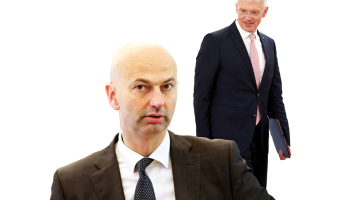Much of the debate surrounding the crises in the PIIGS-countries (Portugal, Ireland, Italy, Greece, Spain) is about their gradual loss of competitiveness vis-à-vis the lean, mean German exporting machine.
If you have followed this debate you might have encountered a graph similar to Figure 1. It displays competitiveness developments measured via the development of the Real Effective Exchange Rate (REER) in these countries using unit labour costs (ULC). (At the very end of this post I have a more detailed description of how to read the graph for those not so familiar with it).
The familiar story is that by keeping a lid on wages Germany has gained, slowly but significantly, in cost competitiveness vis-à-vis the PIIGS where cost control was never that disciplined.
Source: Eurostat (look for exchange rates)















